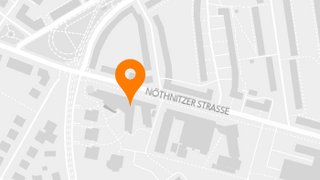Oliver Bäumchen
(Bayreuth, DE)
Christina Kurzthaler
(Dresden, DE)
Holger Stark
(Berlin, DE)

Self-Organizing and Evolving Active Matter
International Workshop
22 - 26 September 2025
Active matter systems encompass a large variety of biological and synthetic agents, ranging from microorganisms, eukaryotic cells, biofilaments, and colloids at the micro-scale, to worms, fish, and birds at the macro-scale. Living agents have evolved a large variety of ingenious strategies allowing them to efficiently forage food and proliferate in seemingly unhabitable niches, omnipresent in their diverse habitats. Many of them are able to self-propel through their complex surroundings, providing them an indispensable advantage over transport via ordinary diffusion. In addition to swimming and surface-associated motility, biological active agents master to grow in diverse environments: while microorganisms form dense communities and biofilms allowing them to resist external stresses, eukaryotic cells shape tissues serving various biological functions. These fascinating properties make them an ideal model system for the fabrication of (self-propelling or replicating) synthetic micro- and nano-machines, applicable for novel biomedical and environmental applications using active cargo-carriers, the design of new “smart materials” with activity-responsive mechanical properties, and the fundamental study of non-equilibrium physics.
This workshop aims at providing an overview and identifying novel principles of self-organization in active matter specifically driven by two distinct mechanisms: active motion and proliferation. It will further propose future research directions at the interface of physics, engineering, chemistry, and life sciences. In order to foster the trans-disciplinary character of the workshop, we will bring together experts from physics (non-linear dynamics, fluid dynamics, complex systems, soft matter, biophysics, machine learning), engineering, and material sciences.
Topics include
- Collective Phenomena of Active Agents
- Intelligent Active Matter
- Chiral Active Systems
- Non-Reciprocal Interactions
- Odd Active Matter
- Active Transport in Complex Environments
- Evolving Active Matter
- Synthetic Replicating Systems
- Smart Materials
- Growth in Confinement
Invited speakers (to be confirmed)
Clemens Bechinger (DE)
Frank Cichos (DE)
Cecile Cottin-Bizonne (FR)
Jens Elgeti (DE)
Nikta Fakhri (US)
Junichi Fukuda (JP)
Diana Fusco (UK)
Robert Grossmann (DE)
Zena Hadjivasiliou (UK)
Guangyin Jing (CN)
Akira Kakugo (JP)
Hiroyuki Kitahata (JP)
Shigeyuki Komura (CN)
Yuki Koyano (JP)
Benno Liebchen (DE)
Anke Lindner (FR)
Sarah Loos (UK)
Hartmut Löwen (DE)
Corinna Maass (NL)
Yusuke Maeda (JP)
Davide Marenduzzo (UK)
Fanlong Meng (CN)
Andreas Menzel (DE)
Alexander Mietke (UK)
Toshihiro Omori (JP)
Ewa Paluch (UK)
Wilson Poon (UK)
Xiaqing Shi (CN)
Juliane Simmchen (UK)
Kazumasa Takeuchi (JP)
Michael Wilczek (DE)
Xinpeng Xu (CN)
Mingcheng Yang (CN)
Hepeng Zhang (CN)
Andreas Zöttl (AU)


